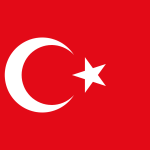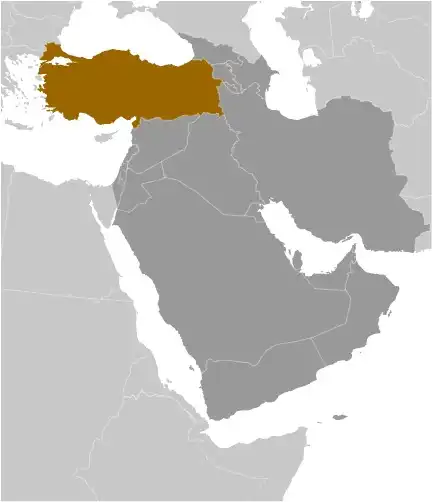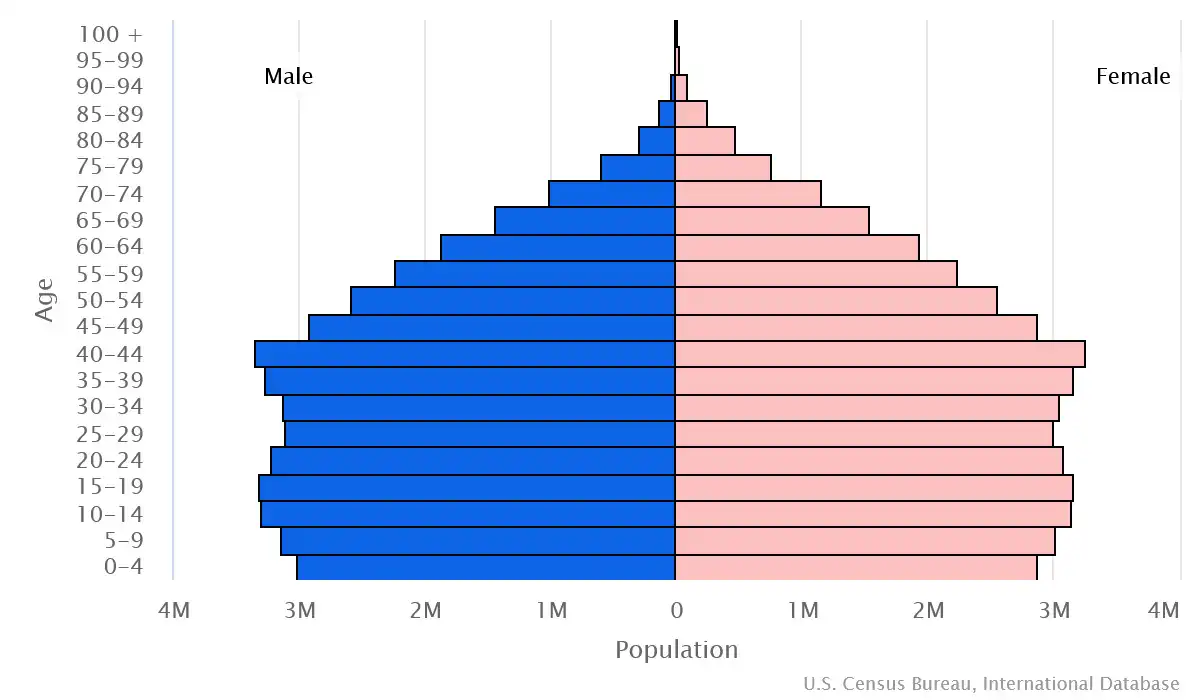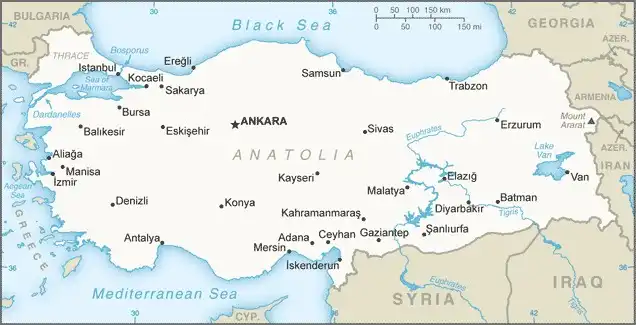
Turkey
Country Data Dashboard

| Government type: | presidential republic |
| Capital: | Ankara |
| Languages: | Turkish (official), Kurdish, other minority languages |
People & Society
Ethnicity (2016 est.)
Religion (mostly Christians and Jews)
Age structure

Economy
Economic overview
upper-middle-income, diversified Middle Eastern economy; industrializing economy that maintains large agricultural base; key energy, tourism, and construction sectors; high inflation, interest rates, and foreign debt pose risk to financial stability
Real GDP (purchasing power parity) in Billion $
Real GDP per capita in $
Exports & Imports in billion $
Top 5 Import Partner in 2022 (40%)
Top 5 Import Commodities in 2022
- gold 💰
- refined petroleum ⛽
- plastics 🧴
- scrap iron 🛠️
- cars 🚗
Top 5 Export Partner in 2022 (40%)
Top 5 Export Commodities in 2022
- garments 👕
- refined petroleum ⛽
- cars 🚗
- jewelry 💍
- plastic products ♻️
Geography
Map

Area
Natural resources
- coal ⚫
- iron ore ⛓️
- copper 🟧🪙
- chromium 🟩
- antimony 🏺
- mercury ⚗️
- gold 💰
- barite 🪨
- borate 🪙
- celestite (strontium) 🟥
- emery 🪵
- feldspar 🪨
- limestone 🪨
- magnesite 🏔️
- marble 🪨
- perlite 🪨
- pumice 🪨
- pyrites (sulfur) 🧪
- clay 🧱
- arable land 🌱
- hydropower 💧⚡
Climate
temperate; hot, dry summers with mild, wet winters; harsher in interior
Historical Background Information
Modern Turkey was founded in 1923 from the remnants of the Ottoman Empire by reformer and national hero Mustafa KEMAL, known as Ataturk or "Father of the Turks." One-party rule ended in 1950, and periods of instability and military coups have since fractured the multiparty democracy, in 1960, 1971, 1980, 1997, and 2016.
Turkey joined the UN in 1945 and NATO in 1952. In 1963, Turkey became an associate member of the European Community; it began accession talks with the EU in 2005. Turkey intervened militarily on Cyprus in 1974 to prevent a Greek takeover of the island and has since acted as patron state to the "Turkish Republic of Northern Cyprus," which only Turkey recognizes. The Kurdistan Workers' Party (PKK), a US-designated terrorist organization, began a separatist insurgency in Turkey in 1984, and the struggle has long dominated the attention of Turkish security forces. In 2013, the Turkish Government and the PKK conducted negotiations aimed at ending the violence, but intense fighting resumed in 2015.
The Turkish Government conducted a referendum in 2017 in which voters approved constitutional amendments changing Turkey from a parliamentary to a presidential system.
